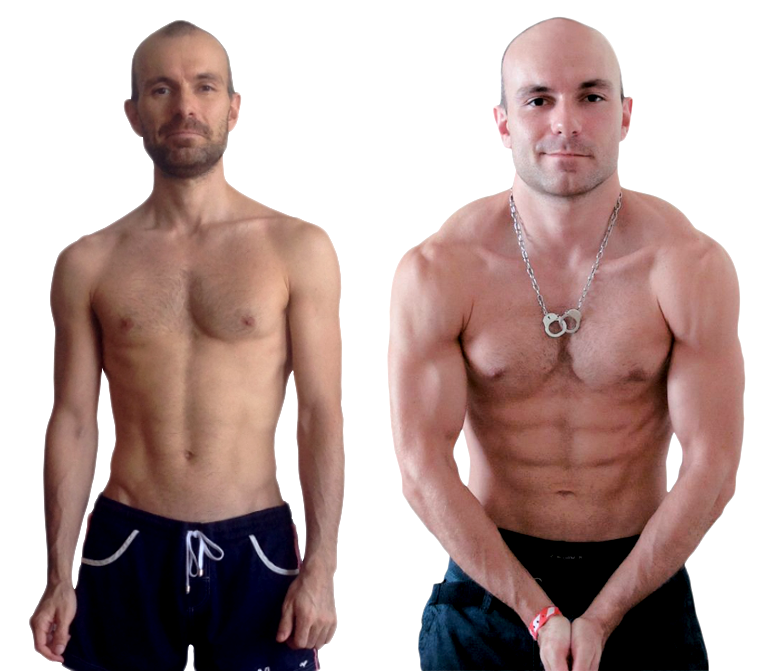Building Muscle: Do You Really Need a Personal Trainer?
Certified trainer weighs the pros and cons

Do you need a personal trainer to build muscle?
As a certified trainer and exercise scientist, I got this question countless times. So if you're torn, you're not alone.
While personal trainers can provide valuable guidance and motivation, they're not always necessary for muscle building. Whether or not you need a personal trainer depends on your fitness goals, experience level, and budget.
You know your body and your goals best, and what's right for one person may not be the best option for another.

Personal trainers offer more than just workout routines; they bring expertise in anatomy, nutrition, and exercise physiology, specializing in creating tailored plans to increase strength and muscle mass efficiently. However, they also represent an additional expense and require a commitment to scheduled sessions.
As you navigate your muscle-building journey, consider alternatives like reliable online resources, intelligent workout apps, or community support from fitness groups.
Remember to weigh the benefits a personal trainer brings against the value of self-guided methods that leverage the power of technology and community.
Key Takeaways
- Personal training can accelerate muscle building but isn't the only path to success.
- Assess your personal needs and circumstances before investing in a trainer.
- Alternative resources like AI personal trainers can offer substantial guidance and support.
Why should you listen to me?
I’ve been a lifter and a coach for 20 years, and a trainer for the Canadian Forces.
I have a B.Sc in exercise science and a PhD in Public Health/Epidemiology (health statistics). I’ve helped about 10,000 people get in shape 1-on-1, in group classes, and online.
And I walk the walk, being in decent shape myself.

Understanding the Role of a Personal Trainer
A personal trainer can be the catalyst to achieving your muscle-building goals, guiding you with expertise and personalized attention.
Benefits of Personalized Coaching
Personal Attention: A certified personal trainer tailors workouts to your specific needs, ensuring exercises are executed with proper form. This individualized approach is designed to maximize muscle gains and reduce injury risk.
Accountability and Motivation: Commitment can wane, but personal trainers are there to keep you on track. Their role extends beyond the gym, often providing moral support and helping maintain motivation through plateaus and challenges.
Qualifications and Certifications
Personal trainers should have certifications from reputable organizations. These certifications indicate they've studied anatomy, exercise science, and nutrition. Trainers continue their education to stay informed on the latest in fitness research and methodology, which can be pivotal for your muscle-building success.
When to Consider Hiring a Trainer
- Hitting a Wall: If progress stalls or you're not seeing the results you want, it may be time to consult a trainer.
- New to Fitness: For newcomers, a trainer can teach foundational exercise techniques, making future workouts more effective and safer.
- Specialized Goals: For those with specific targets, like competing in bodybuilding or needing rehabilitation, the expertise of a trainer is invaluable.
Remember, the journey to building muscle is unique for everyone, and a personal trainer adjusts the compass to point you in the right direction.
Before You Hire a Trainer: Evaluate Your Muscle Building Goals
Before signing up with a personal trainer, take time to define your muscle building goals. Doing so will set the stage for a tailored experience that aligns with your individual needs.
Setting Realistic Expectations
Building muscle is a process that demands patience and consistent effort. Understand that transformations don't happen overnight and setting milestones can help track your progress. For instance, rather than aiming to "bulk up" in a month, consider a more attainable goal like increasing the weight you lift by a small percentage every few weeks. This way, you stay committed and can see tangible results.
Understanding Muscle Building Basics
To effectively build muscle, you need a grasp of the essentials: progressive overload, proper nutrition, rest, and recovery. A personal trainer can offer guidance but knowing these principles yourself empowers you in the journey. For example, progressive overload involves gradually increasing the demands on your muscles, which is fundamental for growth. Familiarizing yourself with these basics ensures that you can engage in informed discussions with your trainer and make the most of each session.
Alternatives to Personal Trainers

Building muscle is a journey you can embark on through various paths. Consider these practical alternatives if a personal trainer isn't currently in your plan.
Generic Programs (e.g. Books or Online)
Pre-designed workout routines found in books or online can be a cost-effective solution. It's crucial to acknowledge that these generic programs aren't tailored to your specific needs or progress, and there’s a risk of mismatching your personal goals with the program’s design.
Workout Apps
Workout apps put a mini-trainer in your pocket. They offer structured plans and often track progress. However, they lack the personal touch and real-time adjustments that a human coach would make based on your day-to-day performance and feedback.
AI Personal Trainer
An AI personal trainer attempts to bridge the gap, offering more customization than generic plans and some level of adaptability. Still, they can't fully replicate the nuanced expertise and motivational presence of a dedicated, in-the-flesh personal trainer.
Dr. Muscle: The World's First AI Personal Trainer
The quest for fitness and muscle building has modernized with Dr. Muscle, a groundbreaking option that leverages AI technology. Traditional personal training can be expensive, often demanding a hefty slice of your budget. Think about the transformative experience at just a fraction of the cost, with Dr. Muscle's AI trainer ready to guide you wherever you are, whenever needed.
What sets it apart? The personalization. Your regimen isn’t a one-size-fits-all; it's crafted uniquely, with workouts designed considering your goals and equipment. Your progress is tracked and routines are adjusted accordingly, ensuring efficient muscle gains. It’s like having a fitness expert housed in your device, tirelessly dedicated to your growth.
- Automation: Streamlines the process, swiftly creating workout plans.
- Accessibility: At hand 24/7; no more aligning schedules with a human trainer.
- Adaptability: Evolves with your progress, similar to an experienced coach.
Though affordable and convenient, remember that AI cannot replace the human touch in personal observation and immediate feedback. It’s a fitting tool, especially for experienced lifters over 35 (learn more here), where familiarity with one's body and exercise form is established.
But can it replace trainers entirely? While AI offers stunning features and smart guidance, it still can’t rival the nuances of face-to-face motivation and the accountability that a physical presence brings. Still, to supplement and enhance your journey, to push you when life gets hectic, Dr. Muscle stands as a cutting-edge companion.
Don’t just take these claims at face value. Check out the Dr. Muscle Reviews to see how others have incorporated this technology into their fitness routines, and assess if this digital coach aligns with your workout preferences and lifestyle.
Frequently Asked Questions
Navigating the decision to hire a personal trainer for muscle building is crucial. Here, you'll find detailed answers to common inquiries about the value a personal trainer brings to your workout and what to weigh before making the commitment.
What benefits can I expect from hiring a personal trainer to build muscle?
A personal trainer provides tailored workout plans, correct techniques, and motivation to target your muscle-building goals. They'll ensure your form is spot-on, reducing injury risks and maximizing muscle growth.
Can self-guided gym workouts be as effective as those led by a personal trainer?
Yes, self-guided workouts can be effective if you're knowledgeable and consistent. However, a personal trainer can offer personalized insights that might accelerate your progress and help you overcome plateaus you can't beat alone.
What are the critical factors to consider before investing in a personal trainer?
Consider the trainer's experience, specialty in muscle building, and their approach to nutrition and recovery. Also, evaluate their costs and ensure their availability aligns with your fitness goals.
How long is an ideal period to work with a personal trainer for muscle development?
This varies by your starting point and goals. Some may see results in a few months, while others may need longer. Be wary of long-term contracts that don't offer flexibility or clear muscle-building strategies.
What personal trainer qualities should I look for to ensure muscle building success?
Look for a trainer with proven muscle-building results. You want someone who communicates clearly, listens to your feedback, and adjusts your program as needed. Their qualifications should assure you of their prowess in muscle-building workout designs.
Are there any lesser-known drawbacks to using a personal trainer for muscle gain?
Personal training can be costly over time and may lead to dependency for motivation or instruction. Keep an eye out for trainers who do not provide a structured plan or who neglect your need for independence in the gym.
